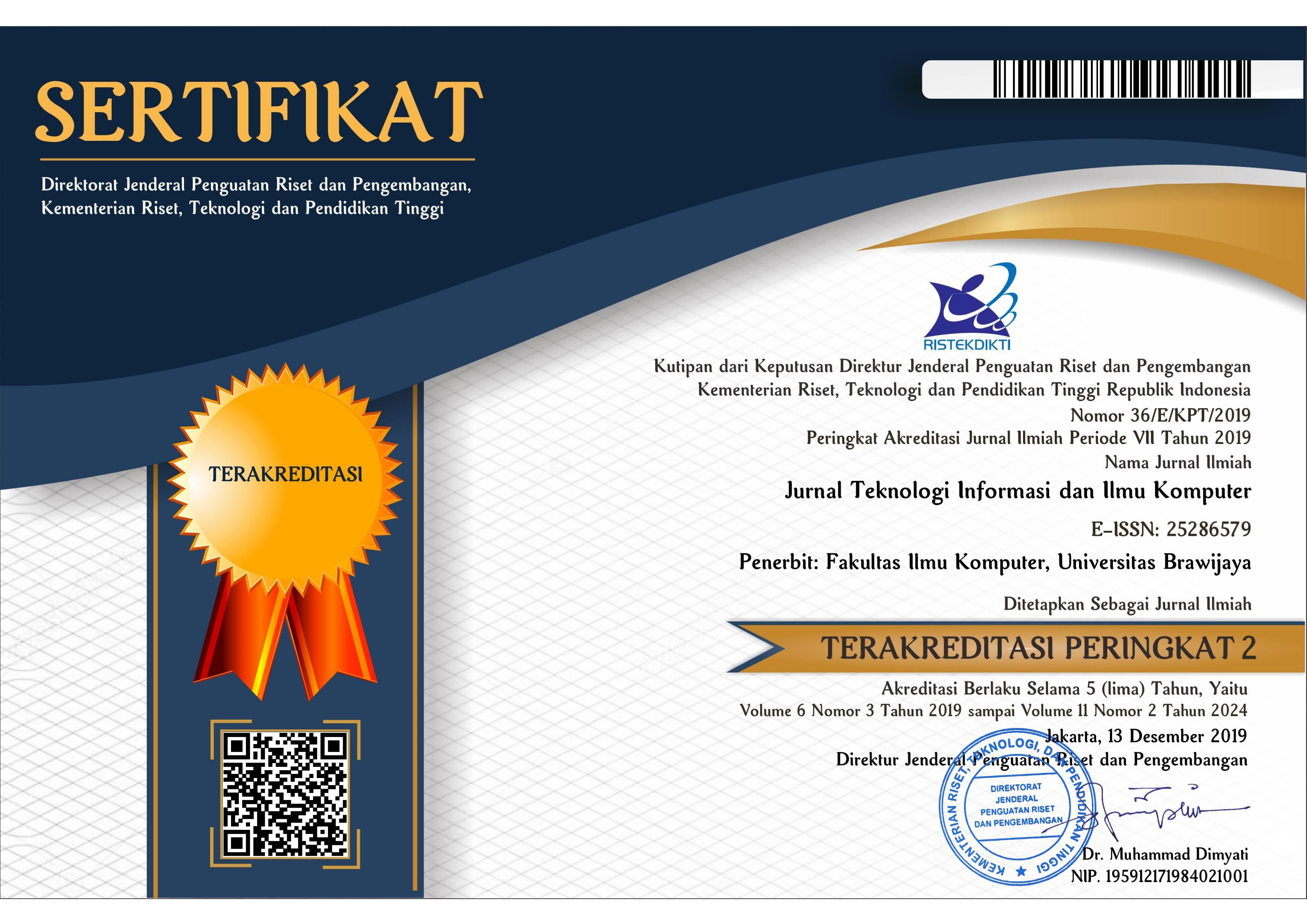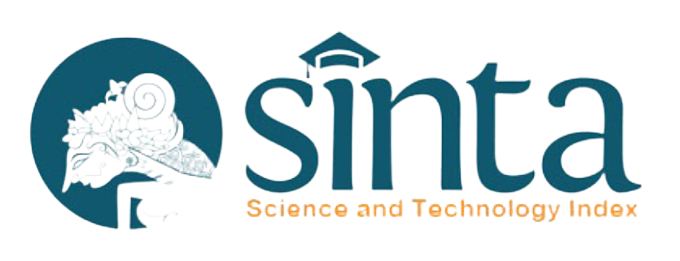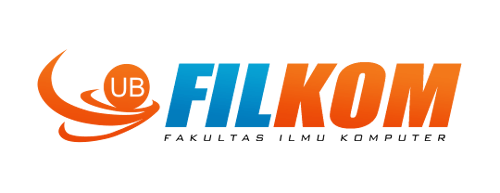Pengaruh Stakeholder Perspective Dalam Penerapan ERP: A Systematic Literature Review
DOI:
https://doi.org/10.25126/jtiik.201851540Kata Kunci:
ERP, Stakeholder Perspective, Faktor – Faktor Stakeholder PerspectiveAbstrak
Penerapan ERP pada perusahaan mempunyai banyak manfaat. Dengan menerapkan ERP, perusahaan mampu meningkatkan produktifitas perusahaan dengan cara mengurangi biaya pengeluaran dan meningkatkan pendapatan. Namun pada penerapan ERP dapat mengalami kesuksesan atau mengalami kegagalan. Oleh karena itu, perlu mempertimbangkan critical succes factor yang berpengaruh terhadap penerapan ERP, salah satunya critical success factor pada penerapan ERP adalah stakeholder perspective. Untuk mengetahui pengaruh stakeholder, maka dilakukan kajian ulang beberapa paper dengan jumlah 24 paper yang ditemukan. Dari kajian ulang didapatkan peninjauan pengaruh stakeholder perspective pada penerapan ERP yang dapat dilihat dari tiga sudut pandang, yaitu studi kasus mengenai pengaruh stakeholder perspective dalam penerapan ERP, faktor-faktor dari stakeholder perspective yang berpengaruh pada proses penerapan ERP meliputi komunikasi, dukungan stakeholder (meliputi dukungan top management dan tim proyek), kesiapan sumber daya manusia, dan beberapa cara atau solusi yang dapat digunakan dalam mencegah atau menangani masalah yang muncul berdasarkan faktor-faktor dari stakeholder perspective yang berpengaruh pada proses penerapan ERP.Downloads
Referensi
Achimugu, P., Selamat, A., Ibrahim, R., & Mahrin, M. N. R. (2014). A systematic literature review of software requirements prioritization research. Information and Software Technology, 56(6), 568–585. https://doi.org/10.1016/j.infsof.2014.02.001
Ali, M., & Miller, L. (2017). ERP System Implementation in Large Enterprises - A Systematic. Journal of Enterprise Information Management, 30(4). https://doi.org/10.1108/JEIM-07-2014-0071
Alsulami, M., & Scheepers, H. (2016). A Comparison between Organizational Stakeholders ’ and External Consultants ’ Perceptions on CSFs Affecting ERP Life. In Hawai International Conference on System Sciences (pp. 4676–4685). https://doi.org/10.1109/HICSS.2016.580
Bajahzar, A., & Alqahtani, A. (2013). SUCCESSFUL IMPLEMENTATION OF ENTERPRISE RESOURCE PLANNING ( ERP ). In International Conference on Advanced Computer Science Applications and Technologies (pp. 156–160). https://doi.org/10.1109/ACSAT.2012.100
Barker, T., & Frolick, M. N. M. N. M. N. (2003). ERP implementation failure: A case study. Information Systems Management, 20(4), 43–49. https://doi.org/10.1201/1078/43647.20.4.20030901/77292.7
Bintoro, B. P. K. (2015). Actors ’ interaction in the ERP implementation literature. Business Process Management Journal. https://doi.org/10.1108/BPMJ-11-2013-0142
Boonstra, A., & Boonstra, A. (2016). How do top managers support strategic information system projects and why do they sometimes withhold this do they sometimes withhold this support ? JPMA, 31(4), 498–512. https://doi.org/10.1016/j.ijproman.2012.09.013
Dezdar, S., & Ainin, S. (2011). The influence of organizational factors on successful ERP implementation. Management Decision, 49(6), 911–926. https://doi.org/10.1108/00251741111143603
Drummond, P., & Araujo, F. (2016). Meeting halfway Assessing the differences between the perceptions of ERP implementers and end-users. Business Process Management Journal, 23, 936–956. https://doi.org/10.1108/MBE-09-2016-0047
Finney, S. (2011). Stakeholder perspective on internal marketing communication: An ERP implementation case study. Business Process Management Journal, 17(2), 311–331. https://doi.org/10.1108/14637151111122365
Gallagher, K. P., Worrell, J. L. J., & Mason, R. M. (2012). The negotiation and selection of horizontal mechanisms to support post-implementation ERP organizations. Information Technology & People, 25(1), 4–30. https://doi.org/10.1108/09593841211204326
Hogan, L. (2014). Critical success factors for ERP implementations Organizational view.
Maguire, S., Ab, O., & Maguire, S. (2010). ERP implementation in Omantel : a case study. Industrial Management & Data Systems, 110(1), 78–92. https://doi.org/10.1108/02635571011008416
Matende, S., & Ogao, P. (2013). Enterprise Resource Planning (ERP) System Implementation: A Case for User Participation. Procedia Technology, 9, 518–526. https://doi.org/10.1016/j.protcy.2013.12.058
Morris, M., & Venkatesh, V. (2010). RESEARCH ARTICLE JOB CHARACTERISTICS AND JOB SATISFACTION : UNDERSTANDING THE ROLE OF ENTERPRISE RESOURCE PLANNING SYSTEM IMPLEMENTATION. MIS Quarterly, 34(1), 143–161.
Nour, M. a., Mouakket, S., Mohamed, a N., & Samar, M. (2011). A Classification Framework of Critical Success Factors for ERP Systems Implementation: A Multi-Stakeholder Perspective. International Journal of Enterprise Information Systems (IJEIS), 7(1), 56–71.
https://doi.org/10.4018/jeis.2011010104
Romero, J. A., Menon, N., Banker, R. D., & Anderson, M. (2010). ERP: Drilling for Profit in the Oil and Gas Industry. Communications of the ACM, 53(7), 118. https://doi.org/10.1145/1785414.1785448
Saade, R., & Nijher, H. (2016). Critical Success Factors in enterprise resource planning implementation - A review of case studies. Journal of Enterprise Information Management, 29(1), 72–96.
Saini, S., Nigam, S., & Misra, S. C. (2013). Identifying success factors for implementation of ERP at Indian SMEs. Journal of Modelling in Management, 8(1), 103–122. https://doi.org/10.1108/17465661311312003
Shah, S. I. H. (2011). Exploring the Impediments of Successful ERP Implementation : A Case Study in a Public Organization. International Journal of Business and Social Science, 2(22), 289–296.
Shaul, L., & Tauber, D. (2012). CSFs along ERP life‐cycle in SMEs: a field study. Industrial Management & Data Systems, 112(3), 360–384. https://doi.org/10.1108/02635571211210031
Waiel AI-Rashid’, M. A. M. A.-M. (2012). Exploring Enterprise Resource Planning (ERP) Implementation From Stakeholder Perspective - A Case Study. In The 5th International Conference on Communications, Computers and Applications (MIC-CCA2012) (pp. 12–14).
Xie, Y., James Allen, C., & Ali, M. (2014). An integrated decision support system for ERP implementation in small and medium sized enterprises. Journal of Enterprise Information Management, 27(4), 358–384. https://doi.org/10.1108/JEIM-10-2012-0077
Unduhan
Diterbitkan
Terbitan
Bagian
Lisensi

Artikel ini berlisensi Creative Common Attribution-ShareAlike 4.0 International (CC BY-SA 4.0)
Penulis yang menerbitkan di jurnal ini menyetujui ketentuan berikut:
- Penulis menyimpan hak cipta dan memberikan jurnal hak penerbitan pertama naskah secara simultan dengan lisensi di bawah Creative Common Attribution-ShareAlike 4.0 International (CC BY-SA 4.0) yang mengizinkan orang lain untuk berbagi pekerjaan dengan sebuah pernyataan kepenulisan pekerjaan dan penerbitan awal di jurnal ini.
- Penulis bisa memasukkan ke dalam penyusunan kontraktual tambahan terpisah untuk distribusi non ekslusif versi kaya terbitan jurnal (contoh: mempostingnya ke repositori institusional atau menerbitkannya dalam sebuah buku), dengan pengakuan penerbitan awalnya di jurnal ini.
- Penulis diizinkan dan didorong untuk mem-posting karya mereka online (contoh: di repositori institusional atau di website mereka) sebelum dan selama proses penyerahan, karena dapat mengarahkan ke pertukaran produktif, seperti halnya sitiran yang lebih awal dan lebih hebat dari karya yang diterbitkan. (Lihat Efek Akses Terbuka).












